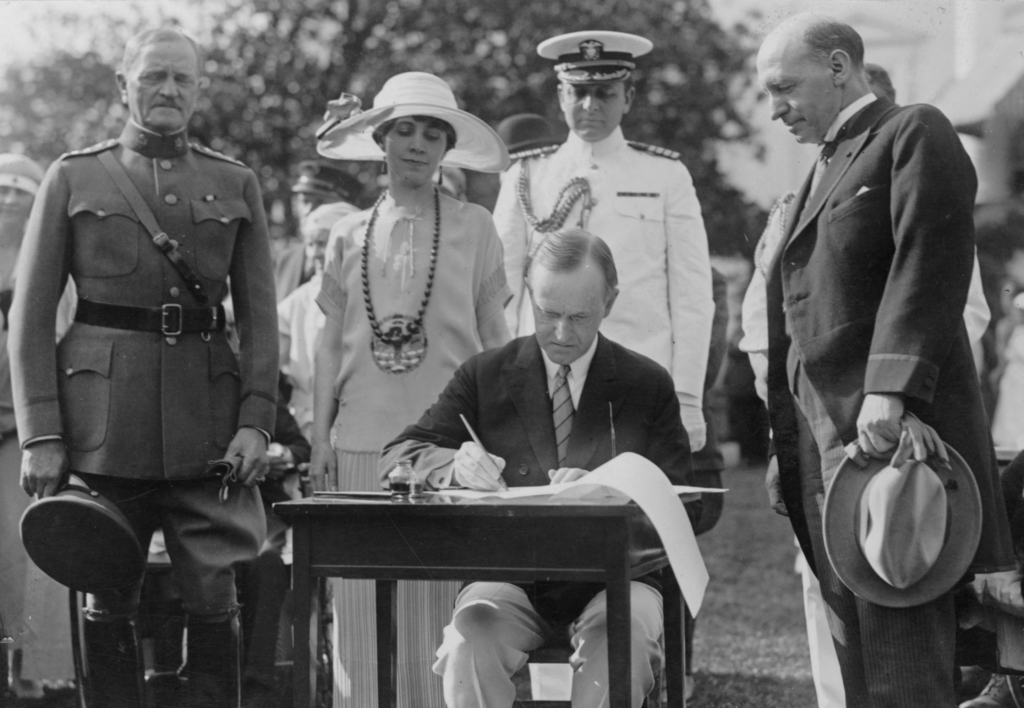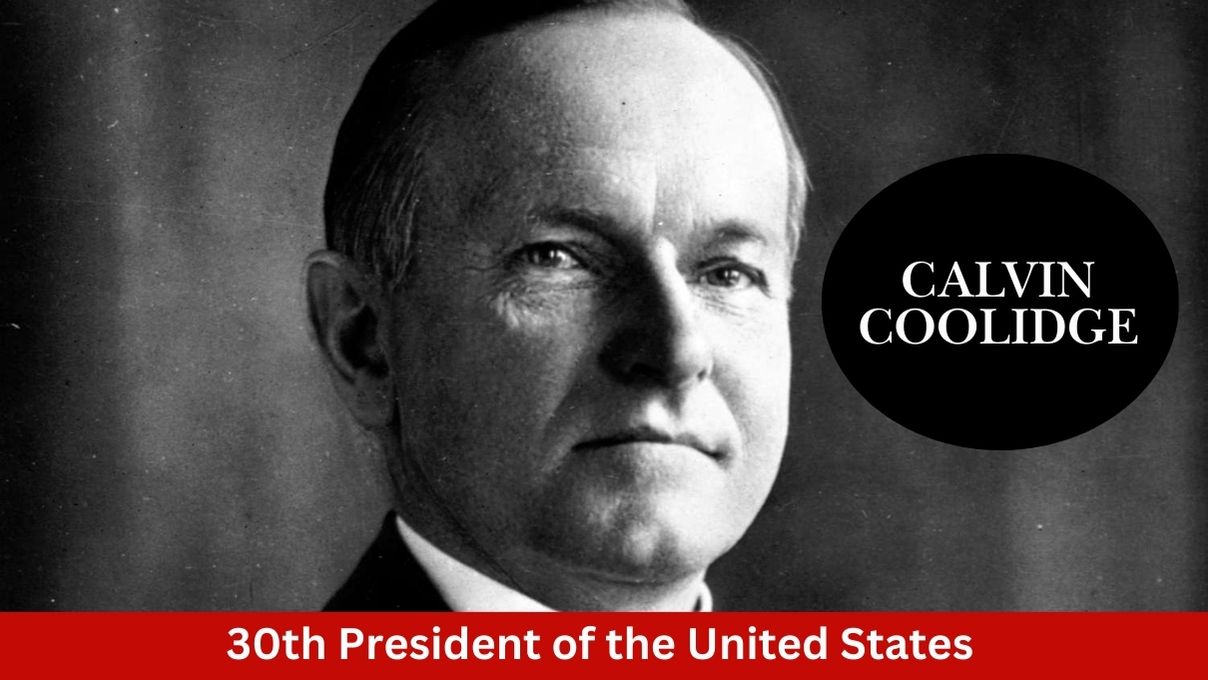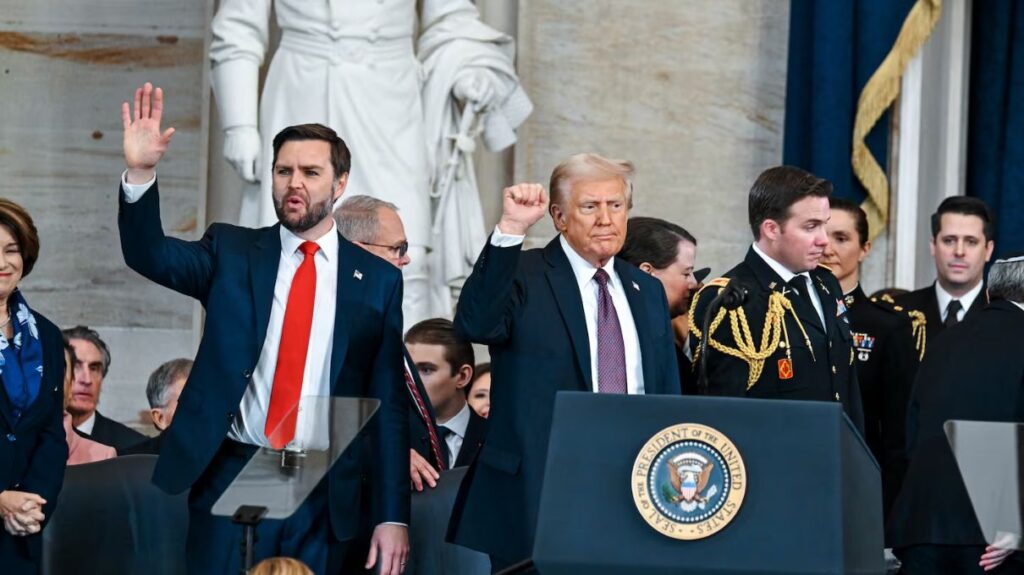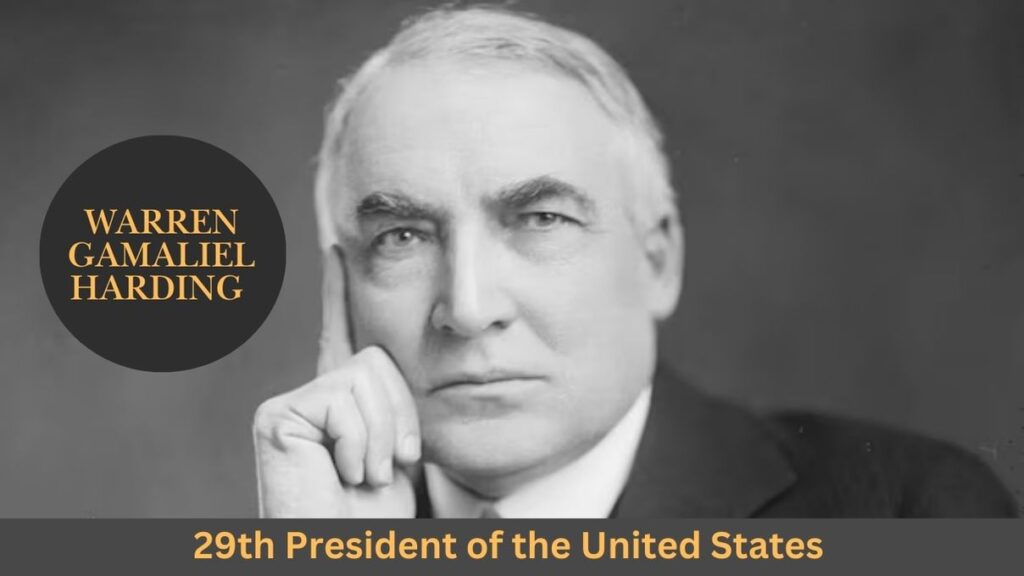Calvin Coolidge, born John Calvin Coolidge Jr. on July 4, 1872, served as the 30th president of the United States from 1923 to 1929. A Republican and lawyer from Massachusetts, Calvin Coolidge became vice president under Warren G. Harding in 1921. When Harding unexpectedly passed away in 1923, Coolidge assumed the presidency and was later elected to a full term in 1924. Known for his conservative approach and reticent nature, his reserved demeanor earned him the nickname “Silent Cal.” Despite his popularity, Coolidge declined to run in the 1928 election, explaining that ten years in office would be “too long.”
During his time as governor of Massachusetts, Calvin Coolidge advocated for fiscal restraint, supported women’s suffrage, and held a generally vague stance on Prohibition. His decisive action during the 1919 Boston police strike, in which he called in the National Guard to restore order, won him national acclaim and showcased his readiness to act firmly in crises. Upon assuming the presidency, Coolidge aimed to restore public faith in the White House, following the scandals that plagued the Harding administration.
Among his notable legislative achievements was the Indian Citizenship Act of 1924, which granted U.S. citizenship to all Native Americans. His tenure coincided with the “Roaring Twenties,” a time of tremendous economic growth and prosperity, bolstering his popularity as a pro-business, small-government leader.
Calvin Coolidge presidency was defined by a commitment to limited government intervention and a strong support for laissez-faire economics. He believed in minimal government involvement in business, reflecting a philosophy that resonated with the middle-class American ideals of self-reliance and personal responsibility. Biographer Claude Fuess described Coolidge as embodying “the spirit and hopes of the middle class,” and noted that his popularity stemmed from his alignment with the values of average Americans. Coolidge’s administration reduced taxes and focused on balancing the federal budget, appealing to the growing middle class and promoting economic independence.
Calvin Coolidge: 30th President of the United State
In foreign policy, Calvin Coolidge generally favored neutrality and non-interventionism, continuing the approach of keeping the United States out of European conflicts following World War I. His administration did, however, support several international economic agreements that promoted peace and stability. Domestically, Coolidge’s policies were welcomed by businesses, which benefited from reduced regulations and a stable economic environment that encouraged investment.
Calvin Coolidge legacy remains a topic of mixed reviews among historians. On one hand, he is praised for his commitment to racial equality, as he denounced lynching and advocated for equal rights during a time of racial tension. His hands-off economic policies and limited-government stance earned him lasting respect from advocates of fiscal conservatism. However, his critics argue that his policies did not do enough to address the struggles of farmers and workers in declining industries. The Great Depression, which began shortly after his presidency, has led some historians to question whether his policies contributed to the conditions that led to the economic downturn.
In recent years, Calvin Coolidge legacy has been reassessed, with some scholars viewing him as a symbol of conservative values and as an embodiment of the economic optimism of the 1920s. While Coolidge is often ranked in the lower half of U.S. presidents, his influence on American conservatism and his philosophy of limited government continues to be relevant in discussions about federal policy and economic regulation.
Calvin Coolidge Early career and marriage
John Calvin Coolidge Jr. was born on July 4, 1872, in Plymouth Notch, Vermont, making him the only U.S. president born on Independence Day. He was the first child of John Calvin Coolidge Sr., a well-regarded local figure and public servant, and Victoria Josephine Moor, who tragically passed away when Calvin Coolidge was just twelve. His younger sister Abigail Grace also died young, a loss that marked Coolidge’s early life. His father, a successful farmer, storekeeper, and community leader, remarried in 1891 and lived to the age of 80.
The Calvin Coolidge family had a long-standing New England heritage. Coolidge’s ancestors emigrated from England to Massachusetts in the 1630s, with a family legacy that included military service during the Revolutionary War and local government roles. Coolidge’s mother was the daughter of a local farmer, grounding him in the rural traditions and values of Vermont.

Calvin Coolidge attended Black River Academy and then St. Johnsbury Academy, later enrolling at Amherst College in Massachusetts. There, he excelled in debate and was deeply influenced by his philosophy professor, Charles Edward Garman, whose teachings on ethics and service profoundly impacted him. Garman’s ideas about service and responsibility helped shape Coolidge’s own views on personal and public duty, which he carried throughout his career.
Following his father’s advice, Calvin Coolidge moved to Northampton, Massachusetts, after graduation to pursue a career in law. He trained with the Hammond & Field law firm and was admitted to the bar in 1897. Soon after, he established his own practice, specializing in commercial law. Known for his straightforward, diligent approach, he avoided courtroom litigation whenever possible, instead working behind the scenes on behalf of local banks and businesses.

In 1903, Calvin Coolidge met Grace Goodhue, a teacher at Northampton’s Clarke School for the Deaf. They married in 1905 in a small ceremony, despite her mother’s initial reluctance. Grace, known for her warmth and charm, brought balance to Coolidge’s reserved personality. They had two sons: John, who went on to become a successful railroad executive, and Calvin Jr., who tragically died in 1924 from sepsis after developing a blister from playing tennis. Calvin Jr.’s death had a profound effect on Coolidge, who later suffered from symptoms of depression.

The Calvin Coolidge family was known for its modesty and frugality; they rented homes rather than owning and attended the Edwards Congregational Church in Northampton before and after Coolidge’s presidency. Despite his high office, Coolidge maintained close ties to his New England roots and the values instilled by his family’s history and community.
Local political office (1898−1915)
Early Political Roles in Northampton (1898–1915)
Calvin Coolidge’s early political career unfolded in Northampton, Massachusetts, where he initially served on the City Council in 1898. Though the role was unpaid, it gave Calvin Coolidge foundational experience in governance. He advanced to the role of City Solicitor, a position that came with a modest salary and allowed him to sharpen his legal expertise. By 1904, Coolidge had made enough of an impression in Northampton to be appointed clerk of courts, a role he held briefly before focusing on his private law practice once again. Although he lost a school board election that year, his determination and measured approach to public service continued to build his reputation.
Massachusetts State Legislature and Mayoralty
In 1906, Calvin Coolidge took his ambitions to the state level, running successfully for the Massachusetts House of Representatives. Known as a “Progressive Republican,” he advocated for women’s suffrage and the direct election of senators. While in office, he aligned himself with influential political figures like U.S. Senator Winthrop Crane. After two terms in the state House, Coolidge returned to Northampton, where he served as mayor from 1910 to 1911. In this role, he focused on improving municipal services, balancing the budget, and supporting local teachers. His success as mayor helped him secure a seat in the Massachusetts Senate in 1911.
Ascending in State Politics
Calvin Coolidge continued to distinguish himself in the Massachusetts Senate, particularly through his work on the Western Trolley Act, which helped connect Northampton to other towns. His leadership style emphasized cooperation, gradual reform, and a pragmatic approach to governance. In 1914, he was elected Senate president, where he became known for his “Have Faith in Massachusetts” speech, a statement of his beliefs on governance that underscored his commitment to serving the public. This speech resonated with both his peers and constituents, further cementing his reputation.
Lieutenant Governor and Governor of Massachusetts (1916–1921)
Calvin Coolidge next major role was as lieutenant governor in 1915, under Governor Samuel McCall. His responsibilities included administrative oversight and chairing the finance and pardons committees, providing him with broader executive experience. Following McCall’s decision not to seek reelection, Coolidge ran for governor in 1918 and won in a close race.
One of the most defining events of his governorship came in 1919 during the Boston police strike. When a large portion of Boston’s police force walked off the job to unionize, Calvin Coolidge backed Police Commissioner Edwin Curtis’ decision to dismiss the striking officers. He ultimately called in the National Guard to restore order in Boston. Coolidge’s response, which emphasized his commitment to public safety and order, resonated with a nation wary of the spread of labor unrest. His stance won him praise as a decisive leader and elevated him to national prominence.
Legislative Priorities and National Recognition
As governor, Calvin Coolidge implemented several progressive measures, such as reducing the work week for women and children, while keeping the state’s finances stable by trimming the budget without raising taxes. He vetoed a bill for a 50% salary increase for state legislators, reinforcing his image as a fiscal conservative. Despite his personal opposition to Prohibition, he also vetoed legislation that sought to allow low-alcohol beer and wine sales, asserting his commitment to constitutional integrity.
Calvin Coolidge actions during the police strike, his stance on fiscal responsibility, and his popular speeches captured national attention and set the stage for his rise in American politics, ultimately leading to his selection as the vice-presidential candidate in 1920. His steady, principled approach and commitment to both order and public service became his enduring political legacy.
Vice presidency (1921–1923)
The vice presidency of Calvin Coolidge, from 1921 to 1923, was a relatively quiet chapter in his political career, yet it solidified his reputation as the reticent “Silent Cal.” Calvin Coolidge nomination for the vice-presidency in 1920 was unexpected. Although Coolidge was one of the candidates considered for president, the party chose Senator Warren G. Harding. When it came time to select a vice-presidential candidate, the party leadership favored Senator Irvine Lenroot of Wisconsin. However, in an unexpected turn, a delegate proposed Coolidge for vice president. The delegates, motivated by a desire to defy the established political bosses, voted him onto the ticket, setting the stage for his entry into national prominence.
Calvin Coolidge vice-presidential campaign was subdued. While Harding campaigned from his home in Ohio, Coolidge traveled across New England and the Upper South, giving concise speeches that aligned with his reserved personality. Their campaign capitalized on post-World War I disillusionment with the progressivism and interventionism of the previous decade. Their victory over the Democratic ticket, headed by James M. Cox and Franklin D. Roosevelt, was a landslide. Harding and Coolidge won over 60% of the popular vote and secured every state outside of the South, marking a decisive victory and a return to conservative governance.
Once in office, Calvin Coolidge became the first vice president to be invited to attend cabinet meetings, thanks to Harding’s open approach to governance. However, Coolidge’s reserved demeanor quickly earned him a reputation. The anecdotes about “Silent Cal” began to circulate during this period. Known for his succinct replies, he was once reported to have responded to a dinner guest’s bet that they could get more than two words from him with a simple, “You lose.” However, Coolidge himself later denied this story, remarking that it was simply one of the many rumors around Washington. Nonetheless, the “Silent Cal” persona was cemented, with Coolidge’s public silence often interpreted as a sign of prudence rather than indifference.
While Calvin Coolidge quiet demeanor sometimes seemed at odds with Washington society, he and his wife, Grace, maintained a presence at events. The socialite and humorist Alice Roosevelt Longworth famously described Coolidge as seeming “as though he had been weaned on a pickle,” highlighting his distaste for social events. Coolidge, however, accepted his image with a sense of humor, once remarking to actress Ethel Barrymore, “I think the American people want a solemn ass as a President, and I think I will go along with them.”
As vice president, Calvin Coolidge remained largely in the background, but his unexpected nomination and growing national reputation for integrity and quiet resolve set the stage for his future ascension to the presidency. The events of the Harding administration, particularly the scandals that would later come to light, would further contrast Coolidge’s upright persona with the troubled legacy Harding left behind.
Presidency (1923–1929)
Calvin Coolidge became the 30th president of the United States on August 2, 1923, after the sudden death of President Warren G. Harding. Calvin Coolidge was visiting his family in Vermont when he received the news, and, by the light of a kerosene lamp, his father administered the presidential oath. To ensure the legality of this swearing-in, Coolidge repeated the oath in Washington. Known for his straightforward and cautious approach, Coolidge’s presidency largely focused on maintaining stability, economic growth, and reducing government interference in business.

Handling of Harding-Era Scandals
Calvin Coolidge took office amid the fallout from scandals that had marred the Harding administration, most notably the Teapot Dome scandal. He responded by supporting Senate investigations and prioritizing transparency, demanding the resignation of key figures like Attorney General Harry M. Daugherty. His approach reflected a commitment to the rule of law and public accountability, which helped him build public trust during a difficult period.
Policies and Achievements
- Economic and Taxation Policies: Calvin Coolidge favored limited government and adopted a laissez-faire stance on economic regulation. He worked with Secretary of the Treasury Andrew Mellon on “scientific taxation,” aiming to increase revenue through lower tax rates, a theory that found favor in Congress. The Revenue Acts of 1924, 1926, and 1928 reduced income tax rates significantly, with only the wealthiest Americans paying federal income tax by the end of his term. Coolidge also reduced federal spending, enabling a significant reduction in national debt.
- Focus on Business and Industry: Calvin Coolidge famously remarked, “The chief business of the American people is business.” His administration’s policies reflected this belief, fostering a pro-business environment during the economic prosperity of the “Roaring Twenties.” Coolidge largely left industrial policy to his Secretary of Commerce, Herbert Hoover, who promoted efficiency and innovations in sectors like radio and aviation. Coolidge minimized regulatory oversight, which some viewed as promoting growth but later criticized as contributing to economic imbalances.
- Radio and Communication Reform: Despite his aversion to regulation, Calvin Coolidge signed the Radio Act of 1927, which established the Federal Radio Commission. This act introduced the equal-time rule, promoting fairness in political broadcasting, and required stations to serve the public interest, a measure aiming to bring order to the rapidly growing radio industry.
- Immigration and Citizenship Legislation: Calvin Coolidge signed the Immigration Act of 1924, significantly restricting immigration, particularly from Southern and Eastern Europe, while lamenting its specific exclusion of Japanese immigrants. He also signed legislation granting U.S. citizenship to all Native Americans born in the United States, which extended rights already achieved by many through marriage, military service, or prior policies.
The 1924 Election
Calvin Coolidge ran for president in his own right in 1924, facing off against Democrat John W. Davis and Progressive candidate Robert M. La Follette. The split in the Republican Party raised concerns about Coolidge’s chances, but his quiet, steady campaign won him widespread support. Coolidge and his vice-presidential running mate, Charles G. Dawes, secured a decisive victory, winning most states outside the South and prevailing in the popular and electoral votes.
Agricultural Policy and Opposition to Farm Subsidies
Agriculture posed a significant challenge for Calvin Coolidge administration. Although farm prices were volatile, Coolidge opposed federal price supports, instead advocating for modernizing farming techniques to increase productivity. Congress proposed the McNary-Haugen Farm Relief Bill, which would have allowed the federal government to purchase and store surplus crops, but Coolidge vetoed it twice. He argued that federal intervention in agriculture would lead to further market distortion and that government should not control farm prices. Instead, he backed a less interventionist proposal—the Curtis-Crisp Act—which aimed to assist farm cooperatives with loans, though it failed to pass.
Legacy and Impact
Calvin Coolidge presidency embodied the conservative values of limited government and fiscal prudence, overseeing a period of economic growth but also growing income inequality and minimal regulatory oversight. His policies significantly shaped the 1920s, fostering a business-friendly climate that contributed to the economic prosperity of the decade. However, some historians argue that his hands-off approach to economic regulation laid the groundwork for the financial practices that would contribute to the Great Depression.
Overall, Calvin Coolidge presidency is remembered for its restraint, discipline, and commitment to free-market principles. Though not always active in initiating reforms, Coolidge’s steady leadership left a lasting impact on American governance and the role of the federal government in economic matters.
Flood Control
During the Great Mississippi Flood of 1927, Calvin Coolidge faced criticism for his response. Although he appointed Herbert Hoover to oversee flood relief, Calvin Coolidge resisted calls for federal flood control, believing it should be funded by property owners rather than taxpayers. He avoided a personal visit to the flood region, wary of political posturing. Ultimately, when Congress passed a 1928 flood relief measure, Coolidge signed it privately, declining credit.
Civil Rights
Calvin Coolidge had a mixed record on civil rights. Although he spoke out against racial prejudice and refused to appoint Ku Klux Klan members, he didn’t actively oppose the Klan. However, he advocated for the rights of African Americans, condemned lynching, and promoted Native American rights by signing the Indian Citizenship Act. His administration also saw a decrease in lynchings and a decline in Klan membership. Coolidge praised African Americans’ contributions in World War I and stressed tolerance toward immigrants.
Foreign Policy
Calvin Coolidge maintained a cautious approach to foreign policy, focusing on American interests. He opposed joining the League of Nations but supported the U.S. joining the World Court, though Congress did not follow through. His administration pushed the Dawes Plan to stabilize Germany’s economy, negotiated the Kellogg-Briand Pact to renounce war, and handled sensitive relations with Mexico, Nicaragua, and the Dominican Republic. His only international trip was to Havana in 1928, marking a rare effort to engage with Latin America.
Cabinet and Judicial Appointments
Calvin Coolidge cabinet retained some of Harding’s members, with Treasury Secretary Andrew Mellon and Commerce Secretary Herbert Hoover holding influential roles. His cabinet experienced minimal turnover, and his key judicial appointment was Harlan F. Stone, initially as attorney general and later as a Supreme Court justice, whom Coolidge chose to restore credibility following the Harding administration’s scandals. Coolidge’s legacy includes the Judiciary Act of 1925, which allowed the Supreme Court more discretion over its caseload.

1928 Election Decision
In 1927, Calvin Coolidge announced his decision not to run for another term, surprising many. He reasoned that ten years in Washington would be too demanding, both for himself and his family. Coolidge later expressed doubts about his successor, Herbert Hoover, though he did not oppose Hoover’s nomination publicly. After leaving office, Coolidge returned to Massachusetts and wrote his memoirs.
Post-Presidency (1929–1933)
After leaving the White House, Calvin Coolidge returned to Northampton, Massachusetts, and settled into a quiet life at a home known as “The Beeches.” He enjoyed a tranquil lifestyle, including time spent boating on the Connecticut River. In this period, Calvin Coolidge held various positions of influence. He became chairman of the Non-Partisan Railroad Commission, which was established by several financial institutions to analyze the country’s transportation infrastructure and suggest improvements. He also served in leadership roles, including honorary president of the American Foundation for the Blind, director at New York Life Insurance Company, president of the American Antiquarian Society, and trustee of his alma mater, Amherst College.
Calvin Coolidge wrote his autobiography in 1929 and contributed to a syndicated column titled “Calvin Coolidge Says” from 1930 to 1931. As the Republican Party faced a challenging 1932 election, some members discussed the idea of drafting Coolidge to run again instead of Herbert Hoover. However, Coolidge declined any such efforts and publicly endorsed Hoover, who ultimately lost the election to Franklin D. Roosevelt in a sweeping defeat.
Death
On January 5, 1933, Calvin Coolidge passed away suddenly from coronary thrombosis at his home, “The Beeches,” at the age of 60. Shortly before his death, Coolidge confided to a friend that he felt out of step with the changing times. He was buried in Plymouth Notch Cemetery in his hometown of Plymouth Notch, Vermont. In 1972, Vermont commemorated Coolidge’s legacy by opening a new visitors’ center near his family home in celebration of his 100th birthday.
Radio, Film, and Commemorations
Though known as “Silent Cal” for his reticent nature, Calvin Coolidge effectively utilized emerging media, especially radio. He held 520 press conferences—more than any previous president—and was the first president to broadcast his inaugural address via radio in 1925. He delivered the first radio address to Congress on December 6, 1923, and signed the Radio Act of 1927, which created the Federal Radio Commission to regulate the airwaves.

Calvin Coolidge was also the first president to appear in a sound film. On August 11, 1924, Theodore W. Case recorded him on the White House lawn using the Phonofilm process developed for Lee de Forest. In 1927, Coolidge awarded aviator Charles Lindbergh the Medal of Honor after his historic transatlantic flight, an event documented on film.




